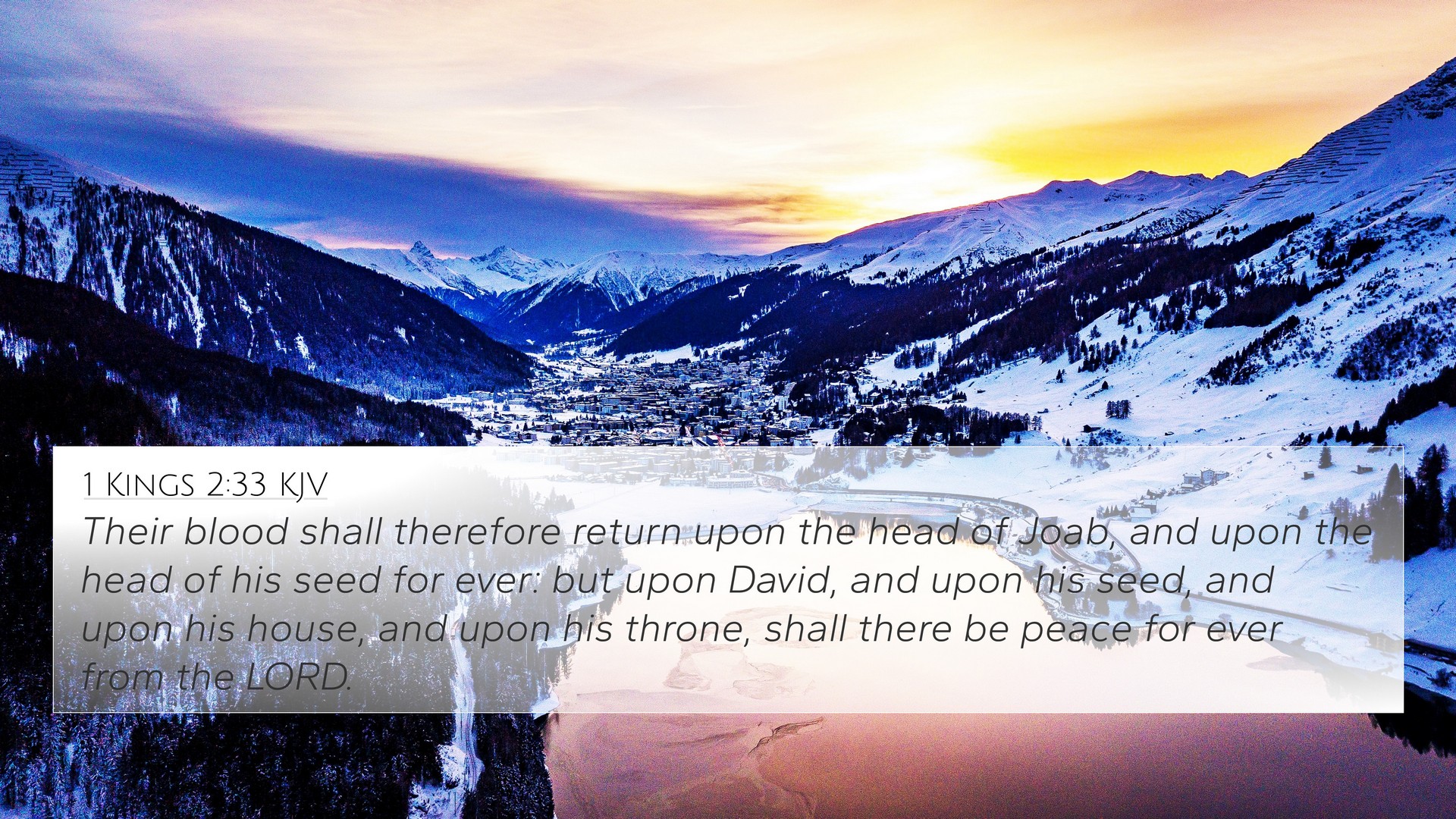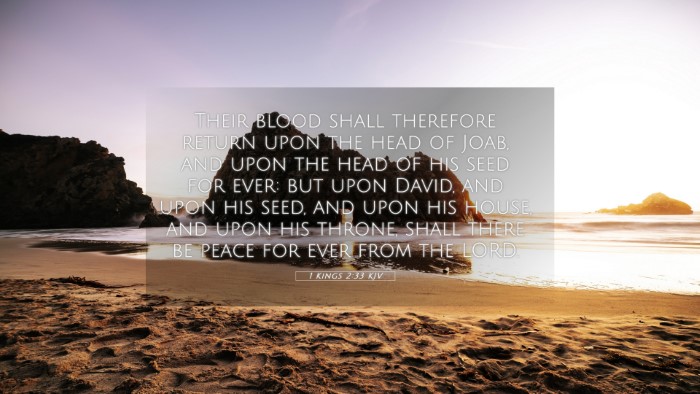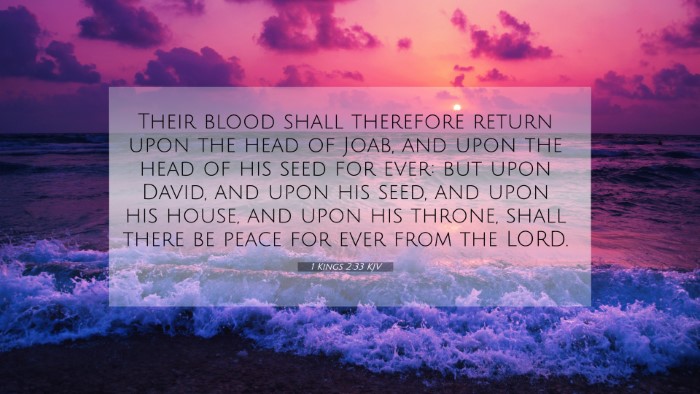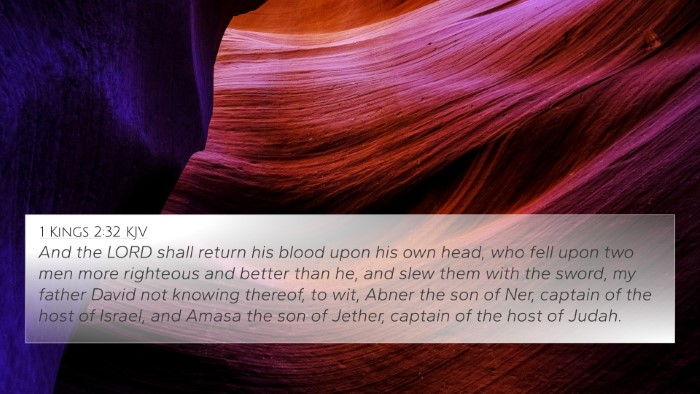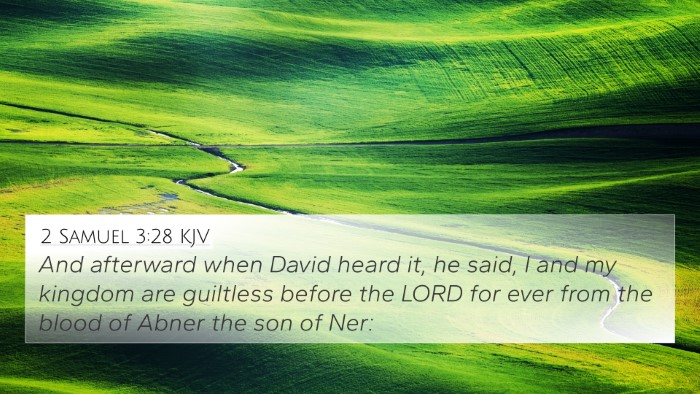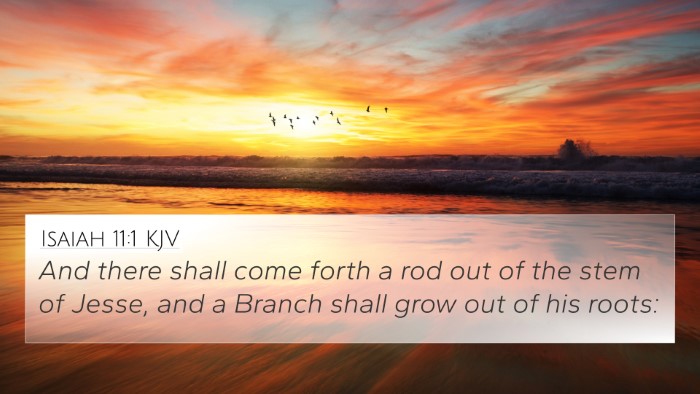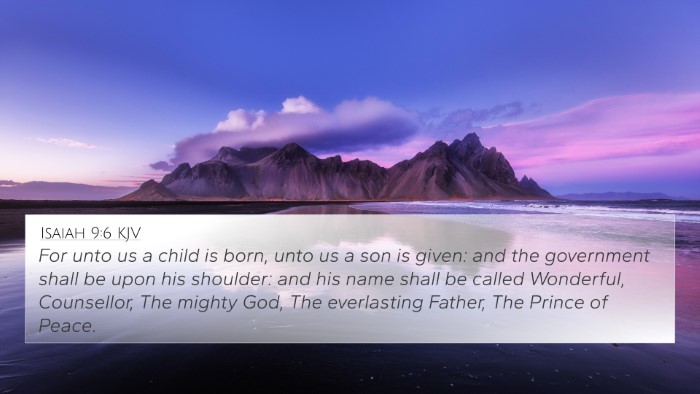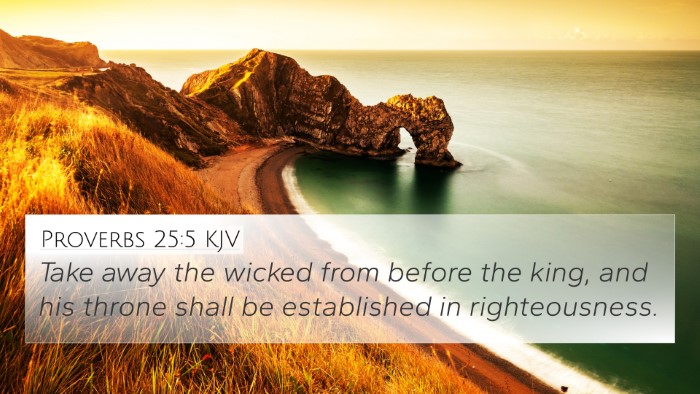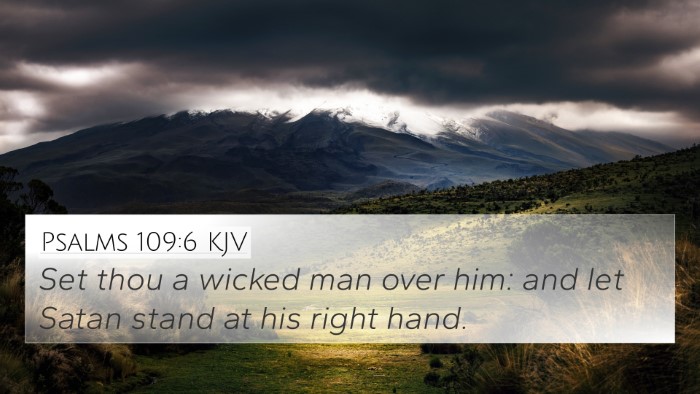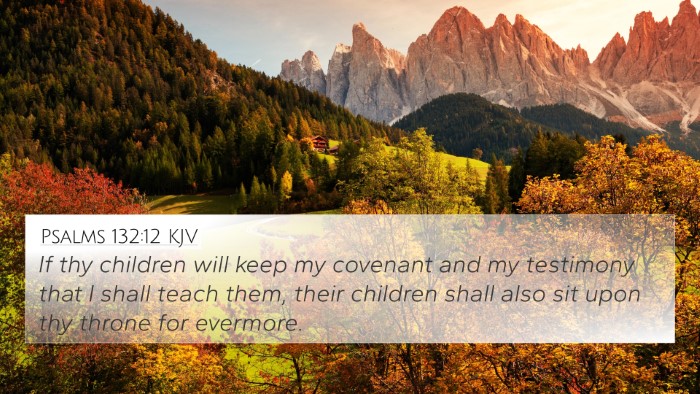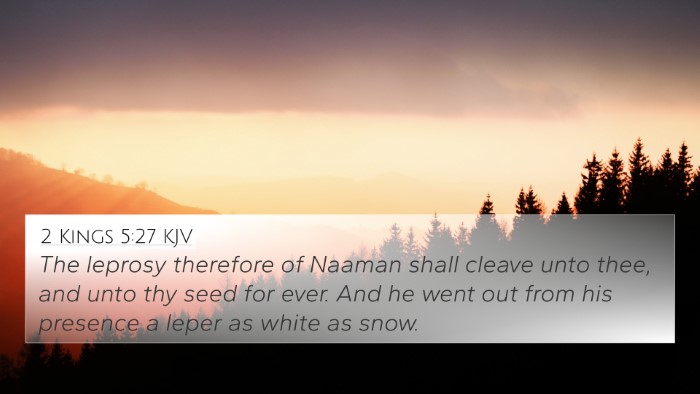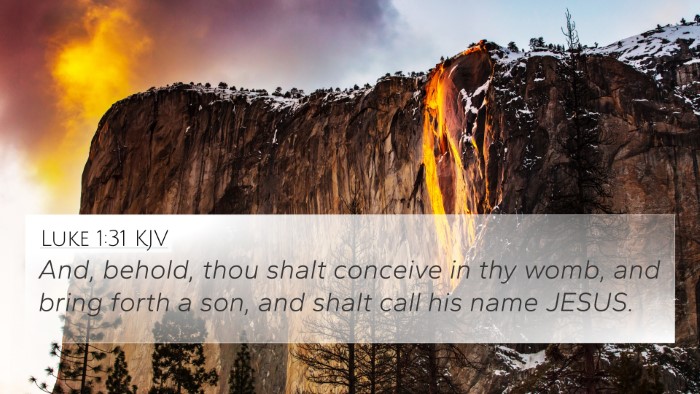Understanding 1 Kings 2:33
Verse: 1 Kings 2:33 - "And the blood of Joab shall return upon the head of Joab, and upon the head of his seed for ever: but upon David, and upon his seed, and upon his house, and upon his throne, shall there be peace for ever from the Lord."
Summary of Meaning
This verse illustrates a profound principle of divine justice and emphasizes the consequences of actions taken by individuals, particularly concerning the bloodshed and murder committed by Joab. The verse serves as a stern reminder of the repercussions that come as a result of one’s deeds, particularly when they involve the sanctity of life and authority.
Contextual Background
The context of 1 Kings 2:33 lies in the final moments of King David's life as he entrusts the kingdom to his son Solomon. David instructs Solomon to deal with Joab, who had betrayed David by supporting Adonijah’s claim to royalty against Solomon. This final directive establishes a clear separation between Joab's actions and the legitimate rule of David's lineage, which is presented as blessed and righteous by God.
Commentary Insights
- Matthew Henry: Henry emphasizes that Joab's bloodguilt was a serious offense against God's ordained leader. The verse highlights the idea that God holds individuals accountable for their violent acts. Henry notes that David's request was not merely personal vengeance but rather a prophetic declaration of God’s judgment.
- Albert Barnes: Barnes reflects on the significance of the punishment, underscoring that it is not just Joab's death that is at stake, but the ongoing consequences for his lineage. He emphasizes the stark contrast between Joab's guilt and the peace promised to David’s house.
- Adam Clarke: Clarke points out that David's reign brought peace, but Joab's actions stirred trouble and division. He notes that the peace of the realm is contingent upon the removal of unjust leaders and the restoration of rightful authority.
Thematic Connections
The themes in 1 Kings 2:33 connect broadly to the ideas of justice, divine retribution, and the implications of sin within biblical texts. This verse connects with the broader narrative of kingship and the responsibilities of rulers before God.
Cross-Referenced Verses
Below are verses that relate directly to 1 Kings 2:33 through themes of justice, authority, and the consequences of sin:
- 2 Samuel 3:39: Here, David laments the loss of control over his kingdom due to Joab's actions, further underlining the tragic consequences of violence and betrayal.
- 1 Chronicles 2:16: This verse notes Joab as the son of Zeruiah, establishing his familial ties which compound the gravity of his actions against the lineage of David.
- Psalm 5:6: In this Psalm, God is portrayed as breaking the violent and deceitful, echoing the judgment rendered upon Joab.
- Galatians 6:7: "For whatsoever a man soweth, that shall he also reap," parallels the principle of consequences illustrated in 1 Kings 2:33.
- Romans 12:19: The exhortation to leave vengeance to God contrasts with the human inclination toward personal justice, as seen in David's dealings with Joab.
- Hebrews 12:14: The call to pursue peace with all men highlights the significance of peace in the context of God's kingdom, reflective of David's hope for peace in his house.
- Proverbs 21:15: The joy of a just king is juxtaposed against the destruction of those who do wrong, resonating with the themes of judgment in our verse.
Application in Life
1 Kings 2:33 serves as a reminder that our actions have consequences not only for ourselves but also for those connected to us. The themes of justice, accountability, and the importance of rightful leadership are vital for anyone who seeks to understand their own lives in relation to divine authority.
Tools for Bible Cross-Referencing
For those seeking a deeper understanding of this verse and its connections, consider the following tools:
- Bible Concordance
- Bible Cross-Reference Guide
- Cross-Reference Bible Study
- Online Bible Reference Resources
Further Study Suggestions
If you wish to engage in cross-referencing biblical texts based on the themes found in 1 Kings 2:33, consider exploring:
- The impacts of leadership as seen in the lives of both righteous and unrighteous kings.
- Comparative studies of vengeance in the Old and New Testaments.
- The motifs of blood and guilt throughout the Scripture.
Concluding Thoughts
This verse offers profound insights into the nature of divine justice and the importance of lineage, authority, and the consequences that accompany wrongdoing. It challenges believers to reflect on their roles within their families and communities while encouraging a commitment to just and peaceful living as decreed by God.
